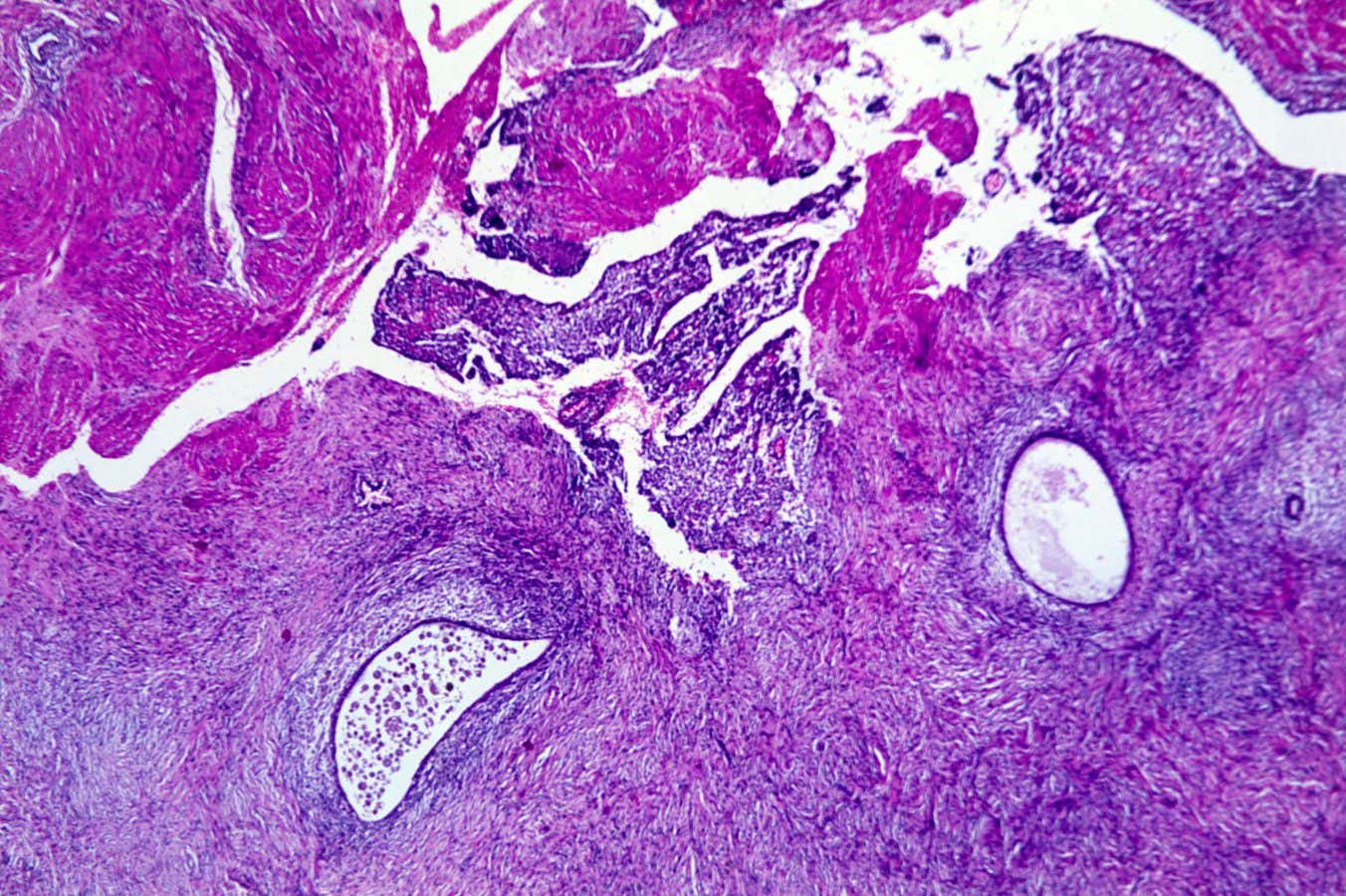A chemical produced by gut bacteria could be the basis for a non-invasive test for endometriosis – and mouse experiments suggest it might also help treat the condition
By Christa Lesté-Lasserre
11 October 2024
Endometriosis tissue viewed under a microscope
BIOPHOTO ASSOCIATES/SCIENCE PHOTO LIBRARY
Low levels of a particular compound in faeces could be a sign of endometriosis – and supplementation of that compound might even help control the condition.
Affecting nearly 200 million people worldwide, endometriosis occurs when the tissue lining the uterus grows in other parts of the reproductive tract. There is no known cure, but lesions can be periodically removed through surgical procedures once the condition has been diagnosed. However, due in large part to a lack of awareness and understanding, it currently takes an average of more than six years for endometriosis to be diagnosed.
Read more
Are you truly healthy? These new tests provide the ultimate check-up
Advertisement
Previous research has suggested that the gut microbiome might play a role in the condition. To investigate further, Ramakrishna Kommagani at Baylor College of Medicine in Houston, Texas, and his colleagues collected stool samples from 18 women with endometriosis and 31 women without the condition. They investigated the bacteria in the faeces as well as the metabolome – the set of chemicals produced by the gut bacteria.
They found that the women with endometriosis had lower levels of the metabolite 4-hydroxyindole in their faeces, possibly due to alterations in the gut microbiome.
Based on that discovery, commercial stool analyses could allow rapid screening for this widely “underdiagnosed, understudied and underappreciated” condition, leading to early and effective management, says Kommagani.
